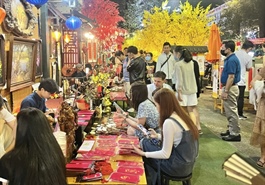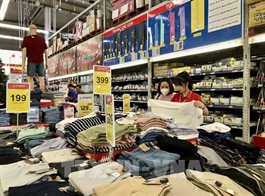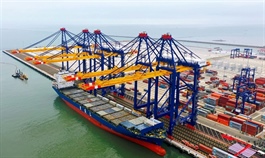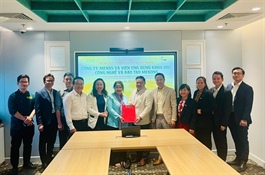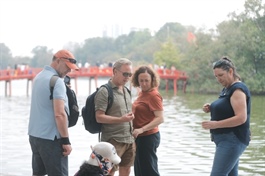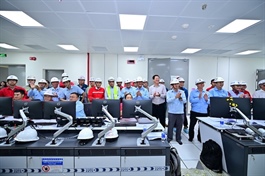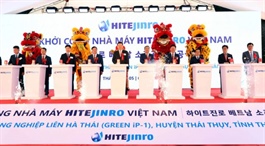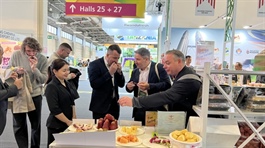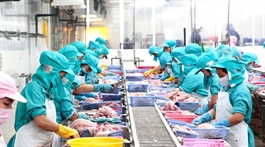High-tech methodology can conquer agri-market
High-tech methodology can conquer agri-market
By 2050, Vietnam aims to lead global agriculture with sustainable, modern agri-processing, driven by technology. Yaron Mayer, Israeli Ambassador to Vietnam, told VIR’s Vy Vy how Israel can be part of this journey by bringing its expertise in agriculture and other industries.
What experiences do you think Vietnam should learn from to optimise agricultural productivity and quality, especially in the context of escalating climate change?
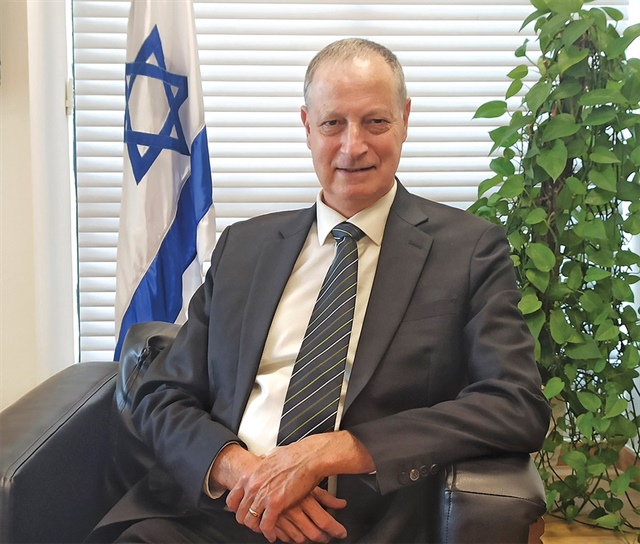
Yaron Mayer, Israeli Ambassador to Vietnam |
We are all fighting climate change and it is a threat to the economies, especially in agriculture. Israel has developed solutions to not only grow in such conditions but also to become a sustainable agricultural producer and exporter.
Looking at our partnership with Vietnam, we have concluded that Israeli technologies are very suitable for local producers and farmers. For years, Israeli drip irrigation has been well received in Vietnam and applied widely from gardens to large-scale green houses.
It allows precise amounts of water to reach the produce, which optimises water use and management. Vietnam, with irregular rainfall and salinisation in coastal areas, could expand this system to enhance plant productivity, most notably in drought regions in the South Central and the mountainous areas.
Many modern dessert agricultural technologies prove to be of high interest by the Vietnamese local farmers as well. Additionally, we recently signed an agreement with the Ministry of Agriculture and Rural Development (MARD) and the Thien Tam Fund of Vingroup to bring modern irrigation technologies of Israel to 10 provinces of Vietnam, benefiting local farmers.
Does Israel have specific plans to promote cooperation in research and technology transfer for high-tech agriculture in Vietnamese regions such as the Mekong Delta or the Central Highlands?
Israel has long sought to establish channels to support Vietnam, in the Mekong Delta and the Central Highlands, as well as in the mountainous north and dry areas such as Ninh Thuan and Binh Thuan. A few months ago, I led a business delegation to the Central Highlands and we explored with local government for further collaboration in this field.
Our advantage is that Israeli agritech has become increasingly popular among Vietnamese businesses and governmental agencies, not to mention individual farmers. I have seen the aforementioned drip irrigation in dozens of provinces. It’s remarkable to see farmers in Son La or Lai Chau provinces use it.
We had and will continue to create business-matching events and opportunities to bring Israeli technologies to Vietnamese partners. The Israeli Trade and Economic Mission in Vietnam is regularly organising seminars and focusing on industry-specific fields. We also approach provinces with agricultural strength to introduce technologies and offer support to their application, through our local partners that receive guidance from Israeli companies.
A large part of agriculture is built on the sustainability of clean water. We have worked with the MARD to improve water management, especially in the south, and the Israeli Development Cooperation Agency (MASHAV) is also considering expanding activities in the region.
Are there plans to expand the scale of cooperation in training workers and conducting joint research between the two nations?
Over last 20 years, Israel has received hundreds of Vietnamese students each year to study and gain experience at agricultural training institutions and farms. Upon returning, they brought with them a wealth of knowledge, as well as leadership skills and startup spirit. These have been applied in both the public and private sectors in Vietnam.
I am delighted to meet many professionals in the agricultural sector who take pride in having been trained in Israel. A highly rated farm in the south-central province of Khanh Hoa that uses an Israeli tech system was created by a former Vietnamese trainee in Israel.
Through the MASHAV, several universities, including the Vietnam National University of Agriculture, Thai Nguyen University of Agriculture and Forestry, and Ho Chi Minh City University of Agriculture and Forestry, have been granted advanced agricultural technology systems from Israel. These demonstration systems are now used in their teaching and research practices.
Additionally, the MASHAV provided scholarships for Vietnamese participants to attend training courses either in Israel or in Vietnam, led by Israeli experts in various fields. This goes beyond the scope of agriculture to fields like education, agriculture, healthcare, entrepreneurship, and climate change. Hundreds of individuals from both government and private sectors have benefited from these scholarships. They have formed an alumni community to collaborate and engage in voluntary activities. Given our strong partnership with Vietnam, we will continue offering these courses and exchange delegations in the near future.
How can Israel’s innovations be applied to address challenges in agricultural supply chains and ensure food security in Vietnam?
Vietnam faces water-related challenges, including droughts in the Central Highlands and salinisation in the Mekong Delta. Israeli innovations are particularly effective in mitigating the impact of irregular rainfall and extreme weather events, helping farmers maintain consistent yields.
To improve the yields, automation technologies such as sensors and data analytics allow farmers to monitor soil health, crop growth, and water needs. This leads to better decision-making and reduces input costs while increasing productivity. In fact, many greenhouses in Vietnam that uses drip irrigation also install sensors that link to a management system directed via a smartphone.
However, to maximise the production chain, the cost of production must be calculated. Israel’s innovations can be adapted for small-scale use, making them accessible to Vietnam’s smallholder farmers. Affordable drip irrigation kits and portable automation devices can help these farmers boost productivity without incurring high costs.







